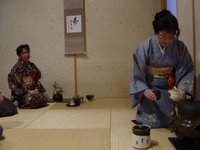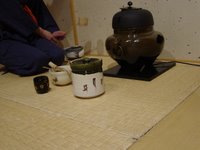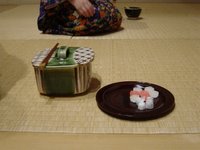Clash of Civilizations
 Samuel P. Huntington's The Clash of Civilizations and the Remaking of World Order presaged what was manifest before the eyes of all on 9/11. In Europe, it is one of the main political themes of the day.
Yet the role music plays in this conflict is seldom regarded by the disciplines concerned, like composition or musicology. This theme will occupy future blog postings here.
Other art forms are more prescient, today's example being Iranian visual and video artist Shirin Neshat (b. 1957). Neshat's distress regarding certain aspects of the new, huge MoMA exhibit on Islamic art is expressed in an online article from the New York Observer that begins, "As an Iranian-American artist who was effectively exiled from her homeland, Shirin Neshat was happy to be included in an exhibition of artists from the Islamic world. But when the opportunity came—Without Boundary: Seventeen Ways of Looking opened at the Museum of Modern Art on Feb. 26—Ms. Neshat was upset."
There is a good introduction to the exhibit here
To be continued...
Samuel P. Huntington's The Clash of Civilizations and the Remaking of World Order presaged what was manifest before the eyes of all on 9/11. In Europe, it is one of the main political themes of the day.
Yet the role music plays in this conflict is seldom regarded by the disciplines concerned, like composition or musicology. This theme will occupy future blog postings here.
Other art forms are more prescient, today's example being Iranian visual and video artist Shirin Neshat (b. 1957). Neshat's distress regarding certain aspects of the new, huge MoMA exhibit on Islamic art is expressed in an online article from the New York Observer that begins, "As an Iranian-American artist who was effectively exiled from her homeland, Shirin Neshat was happy to be included in an exhibition of artists from the Islamic world. But when the opportunity came—Without Boundary: Seventeen Ways of Looking opened at the Museum of Modern Art on Feb. 26—Ms. Neshat was upset."
There is a good introduction to the exhibit here
To be continued...





